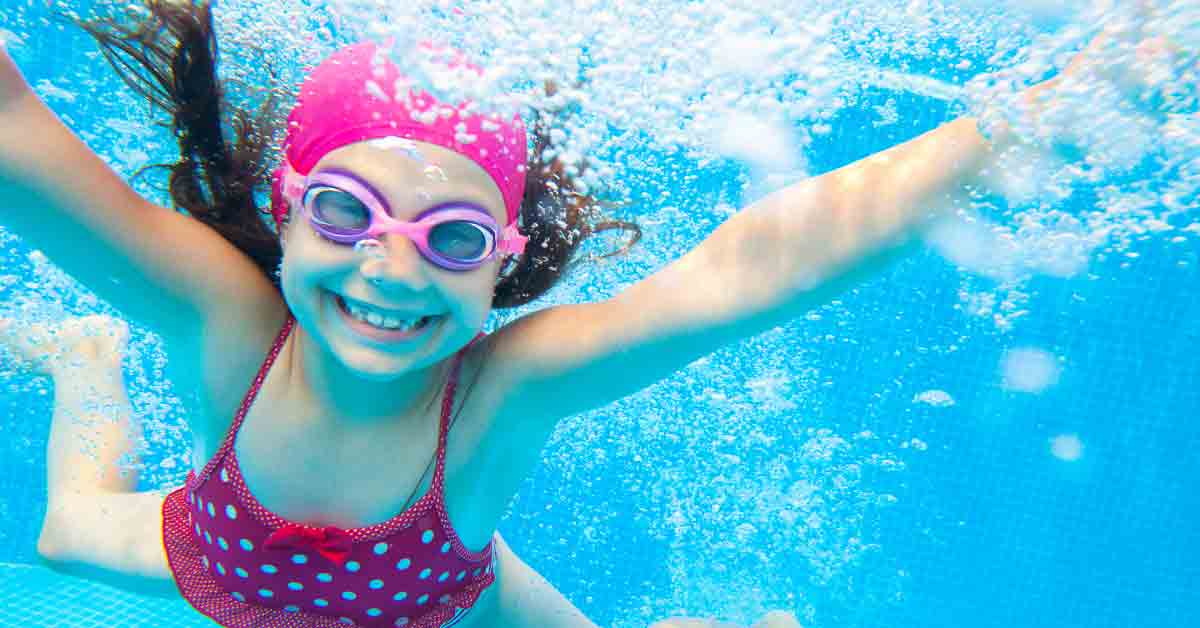Questions to Ask Yourself When Considering a New Pool
Looking to install a new swimming pool in the backyard? With the ability to custom design your pool, there are a lot of options. A lot of prospects means a lot of decisions. Don’t worry, though. As experienced pool builders in the Phoenix area, the staff at Specialty Pools can help you decide on the perfect pool for you and your family. However, to get started, consider the following:
What Will You Use the Pool For?
This question is essential when trying to decide which pool will work best for your family. Are you looking to entertain a gaggle of teenagers on the weekend? Or will the pool be a relaxing romantic oasis for you and your partner after work? Consider whether you will use the pool to entertain others and how much space you have to dedicate to the pool.
Recreational Pools
If you plan on using the pool for mostly recreational purposes, think about how many people will use the pool at one time. For groups of six or less, a smaller pool of about 16 feet by 32 feet will allow for enough room for games and lounging without overcrowding. However, if you plan to entertain six or more people regularly, a bigger pool is more appropriate. Most recreational pools have a shallow end to allow for games like water basketball or volleyball, as well as to keep children safe. Deep ends are nice to have for older and more experienced swimmers.
Lap Swimming Pools
If you primarily use your pool for exercise, you’ll want a rectangular shaped pool of at least 30 feet in length. This length ensures you’ll have enough room for lap swimming. If you’re a competitive swimmer, you’ll need a pool depth of more than your height to provide the ability to practice complete strokes.
Inground, Onground, or Aboveground?
Before approaching a swimming pool contractor, it’s helpful to have an idea of whether you want your pool in, on, or above ground.
Inground Pools
Inground pools require excavation, but, despite popular belief, you don’t need a massive yard for an inground pool. Inground pool construction consists of inserting a framed wall into a prepared hole, along with a liner.
On-ground Pools
On-ground pools are partially submerged, and they tend to cost less than traditionally-installed inground pools. Keep in mind that you won’t have quite as many options when it comes to shape and size for on-ground pools due to their unique qualities.
Aboveground Pools
Aboveground pools are a good option for families with small children. Due to their construction, safety is much easier to monitor than an inground pool. Additionally, aboveground pools make an ideal environment for teaching children how to swim.
What Pool Materials Do You Want?

Call Specialty Pools today to get started on your new pool design!
Another factor to consider when installing a new pool is the material of the pool. Generally, you can choose between concrete, vinyl, and fiberglass.
Concrete Pools
Concrete pools are the most popular pools, but they are also the most expensive. Additionally, concrete pools tend to require more chemical use and more maintenance. Concrete has multiple benefits, including:
- Durability. Concrete is a strong material, and concrete pools tend to last longer than pools made from other materials.
- Variety. Concrete pools are constructed in any shape or size, meaning that your new concrete pool is virtually wholly customizable.
- Aesthetics. There’s no way around it. Concrete pools look beautiful in the yard, and they make a great addition to your backyard oasis!
Vinyl Pools
Vinyl pools are increasing in popularity due to their low initial cost. Additionally, vinyl pools inhibit algae growth, which lowers maintenance requirements. Vinyl liners have a nonabrasive surface, which can prove useful for homes with small children. Concrete pools tend to be rough on little feet. However, vinyl liners only last five to nine years before they need replacement. Additionally, vinyl liner pools have a lower resale value than concrete pools.
Fiberglass Pools
While fiberglass pools’ installation costs are typically more expensive upfront than vinyl pools, they have little to no lifetime cost. Fiberglass pools also have a nonabrasive surface and built-in seats and steps. Fiberglass pools look beautiful and can be quickly installed. However, fiberglass pools have more limitations when it comes to shape and size, and they aren’t as customizable as concrete pools.
What’s Your Budget?
One of the first things to consider when making a big purchase, such as a pool, is budget. Make sure to consider both the initial cost of the pool and the lifetime costs of the pool’s maintenance and wear-and-tear. For example, if you want a custom shaped pool, but you don’t have a sizable budget to dedicate to a concrete pool, a vinyl liner pool may be the most appropriate choice for your family. However, keep in mind that if you work with us here at Specialty Pools, we have financing options available so that you don’t have to sacrifice the pool of your dreams!
How Often Will You Use Your Pool?
This question is essential to ask when considering what pool to buy because how often you use your pool directly affects the amount of maintenance required for its upkeep. For example, if you plan to use your pool nearly every day, fiberglass may be a better choice than concrete due to concrete’s increased maintenance costs.
How Can Specialty Pools Help?
Here at Specialty Pools, we specialize in helping you create your perfect backyard oasis. We can work with you on an idea for your new swimming pool, including custom designs and even a lazy river! We have decades of experience among our highly-trained and knowledgeable staff, and we can help you answer all of the above questions and more when designing your brand new pool! Call today to get started!

